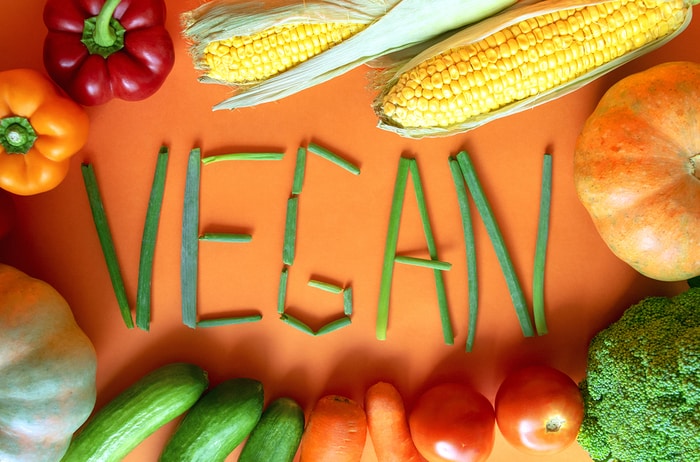Forget what you’ve heard about vegan food being bland or the lifestyle being too expensive. Eating plant-based is delicious, affordable, wholesome, and nourishing. But, don’t take our word for it. Follow these five steps and dive into the vegan lifestyle with ease and comfort.

Shop smart
Eating a healthy vegan diet doesn’t have to be expensive or time-consuming. In fact, the essentials of veganism are accessible and reasonably priced. Only specialty items like superfoods and mock meats are expensive, but you really don’t need these to stay healthy.
Try shopping at a local farmer’s market to save money while getting access to organic produce. It might also be a good idea to invest in top-quality cookware and utensils that’ll motivate you to cook at home. That way, you’ll always know what’s in your food.
Find your “why”
It’s important to figure out why you want to become vegan in the first place. Is it to lose weight? Improve your health? Support the animal rights movement? Protect the environment? All of the above?
Start by watching documentaries such as Dominion, Cowspiracy, Land of Hope & Glory and others and reading books on the benefits of veganism. This will solidify your resolve and give you the confidence you need to stay motivated when people in your life try to discourage you. It’ll also help you design a vegan-friendly lifestyle that works for you.
Take care of your nutrition
There are lots of different ways to be vegan. You can be fully raw, fruitarian, high-carb-low fat – the options are endless. But, the healthiest and easiest way to start a vegan diet is to consume whole foods like grains, legumes, fruits, vegetables, healthy seeds, and nuts. These vegan essentials will provide your body with all the nutrients and calories it needs to thrive.
On the topic of calories, it’s also important to make sure that you’re eating enough of them. Use a calorie counting app to ensure that you’re getting at least 1600 to 3000 calories a day, depending on your body type and activity levels.
As with any diet or lifestyle, it’s advisable to take supplements whenever you feel like you need a boost. For instance, expectant mums may need to take folic acid and iron supplements, while vitamin D is great for anyone that doesn’t get much sunshine.
Find alternatives
There are so many meat alternatives and dairy replacements available out there. You can easily find mock meats and veggie burgers at most grocery stores. Some places even stock prepared meals with vegan ground meat, chicken fillets, and more.
If you don’t like the idea of eating processed mock meats, you could always opt for versatile ingredients like jackfruit and tofu. Jackfruit has a meat-like consistency that makes it perfect for tacos, barbecuing, and making jackfruit “pulled pork” sandwiches.
Tofu is great for making tofurky or scrambled eggs, which look and taste like the real thing!
Plan ahead
Planning your meals in advance can help you save time and money. Try to follow a meal plan and do meal-preparation at the beginning of the week. It only takes about 1 to 2 hours to prepare your food for the week, and you’re less likely to eat out when your fridge is well-stocked.
It also helps to have snacks on you at all times, especially if you live in a place that isn’t vegan-friendly. Keep treats like bananas, nuts, or dried fruits in your car or handbag so you have something to eat on-the-go.
The best thing you can do is stop worrying and dive in. Realize that you won’t get it perfect the first time, and instead of stressing, enjoy the journey, learn along the way, and have fun!
